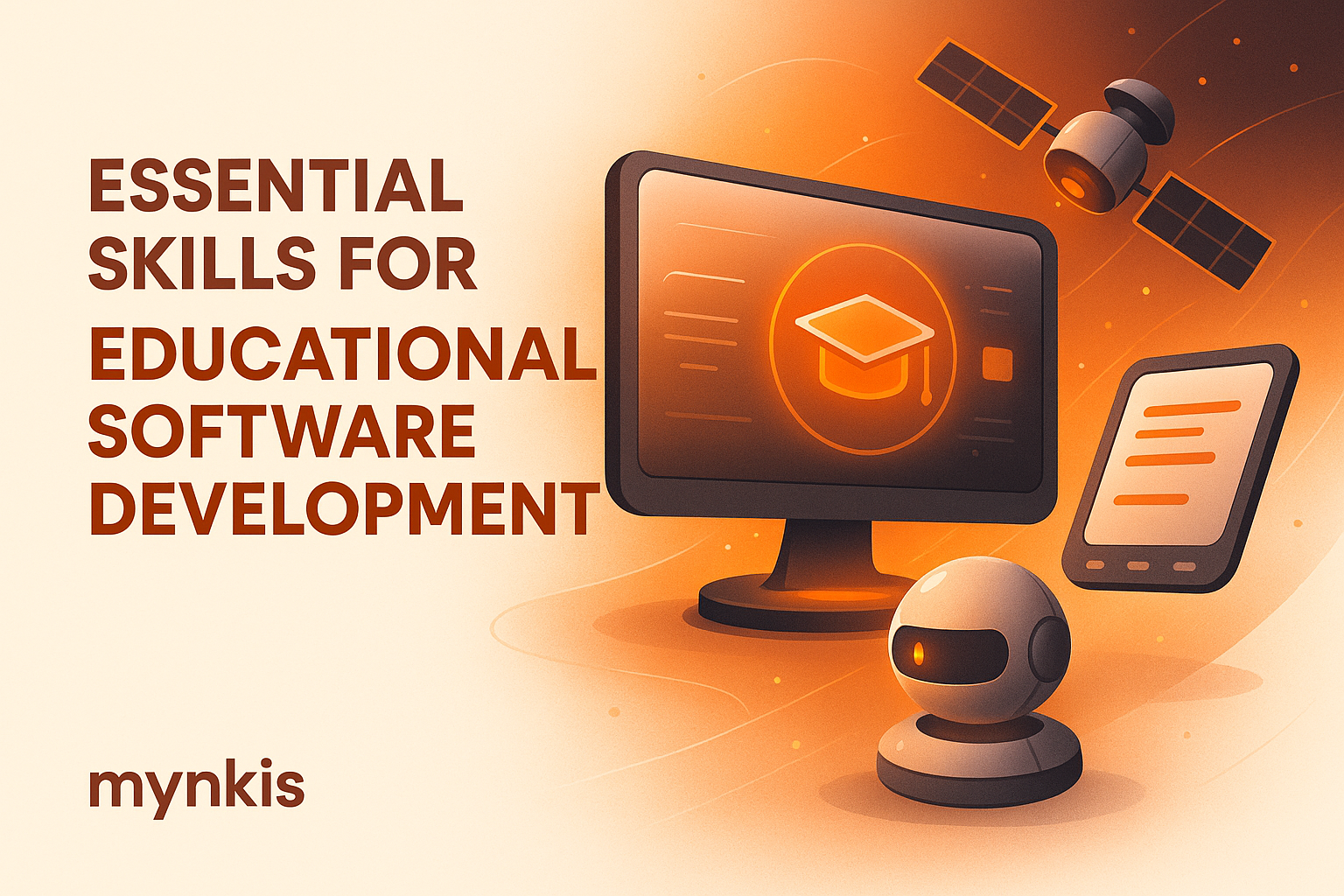Schedule a Demo
As educators and academic administrators, the push towards digital transformation is no longer a choice but a necessity. I've worked closely with numerous schools and universities, each looking to revolutionize their approach to education through cutting-edge learning management systems (LMS) and websites optimized for search traffic. The challenge? Finding software developers equipped with the right skills to bring these visions to life.
First and foremost, a developer's technical prowess is non-negotiable. For the development of an LMS or educational website, proficiency in languages such as HTML, CSS, JavaScript, and possibly more specialized languages like Python or PHP, is crucial. I've seen projects falter not because the ideas weren't brilliant, but because the fundamental technical skills weren't there to execute them effectively. Yet, it's not just about knowing these languages; developers must also be adept at frameworks like React or Angular for the front end and Node.js for the back end. These tools enable the creation of dynamic, responsive platforms that adapt to the evolving needs of the educational sector.
Education is about more than content delivery; it's about creating an environment conducive to learning. A robust understanding of UX/UI design principles is therefore essential. I've learned that students and teachers alike appreciate platforms that are intuitive and easy to navigate. Developers must prioritize the end-user experience, ensuring that the system is not only functional but also enhances the learning process. I remember working on a project where we completely reimagined the user interface of a university's LMS to make it more student-centric, leading to a significant increase in user satisfaction and engagement.
In the realm of education, data is invaluable. Developers must have a deep understanding of database management systems like MySQL or MongoDB to ensure seamless integration and manipulation of data. Additionally, with the rise of cyber threats, I emphasize the importance of robust security protocols. A developer knowledgeable in encryption, cybersecurity, and privacy laws such as FERPA (Family Educational Rights and Privacy Act) can instill confidence in the platform's ability to protect sensitive student information.
The digital landscape of education demands more than just functional platforms; visibility is key. For schools and universities, optimizing their websites and LMS for search engines can dramatically increase their online presence. Developers need to integrate SEO best practices from the ground up, considering aspects like keyword optimization, mobile-friendliness, and page loading speed. I've seen institutions leverage SEO effectively, resulting in higher traffic to their sites and more engagement from potential students and their families.
Developing educational software isn't a solitary endeavor; it's a collaborative process involving educators, students, and developers. Strong communication skills are vital, enabling developers to translate educational needs into technical solutions. I've always advocated for regular feedback loops during the development process to ensure the final product meets the institution's expectations. Transparency in the development process fosters trust, ensuring all stakeholders feel involved and valued in the journey of creating a next-generation learning platform.
The field of education technology is rapidly evolving, with new tools and methodologies emerging constantly. Developers must possess an inherent drive for innovation and the adaptability to embrace these changes. I once worked on a project that integrated augmented reality into a learning platform, showcasing how thinking outside the box can lead to revolutionary educational experiences. Keeping abreast of trends like AI-driven analytics or gamification ensures that the educational platforms remain cutting-edge and engaging for users.
Creating complex systems like custom learning management systems requires meticulous project management. I've seen how a well-managed project can lead to timely completion and satisfied stakeholders. Developers should be skilled in methodologies such as Agile or Scrum, which allow for flexibility and iterative improvements based on user feedback. This approach ensures that the platform evolves with the users' needs, a critical factor in educational environments where requirements can change rapidly.
In developing software for educational institutions, adherence to regulations and standards is paramount. I've witnessed projects encounter hurdles due to unforeseen compliance issues. Developers need to be familiar with relevant regulations, such as ADA compliance for accessibility or GDPR for data protection if serving international students. A proactive approach to compliance not only prevents legal issues but also ensures the platform can serve a diverse educational community with confidence.
In today's data-driven world, the ability to analyze and interpret data is a valuable asset for developers. I've integrated analytics into educational platforms, enabling institutions to track student engagement and learning outcomes effectively. Developers skilled in data analysis can provide educators with actionable insights, helping them refine their teaching methods and improve the overall learning experience.
Lastly, an understanding of the educational landscape itself is crucial for developers tasked with creating learning platforms. I believe that developers who bring an interdisciplinary approach, understanding pedagogy and educational theories alongside their technical skills, create solutions that genuinely enhance learning. I once collaborated with an educational psychologist on a project to develop an LMS feature tailored to different learning styles, demonstrating the power of merging tech with education.
Through these essential skills, developers can revolutionize how education is delivered in the digital age. As schools and universities continue to seek custom solutions for learning management and online presence, the demand for developers who can blend technical expertise with a deep understanding of the educational environment will only grow. The future of education depends on the ability of these skilled professionals to craft innovative, user-friendly, and secure platforms that meet the evolving needs of learners and educators alike.
